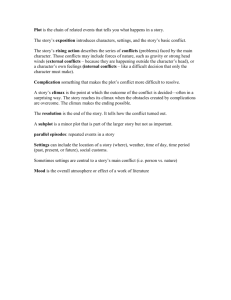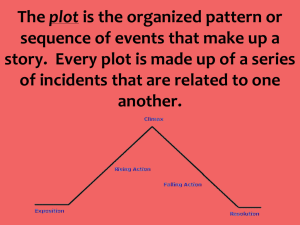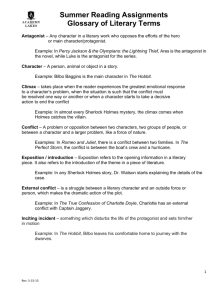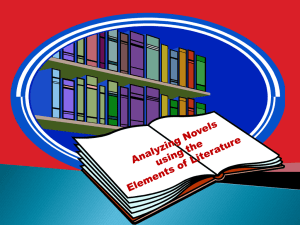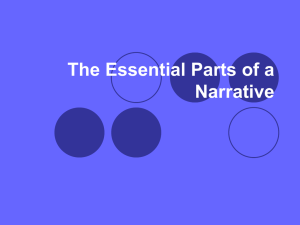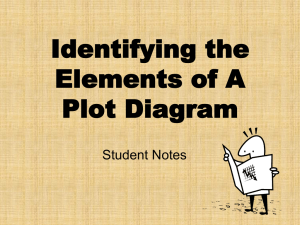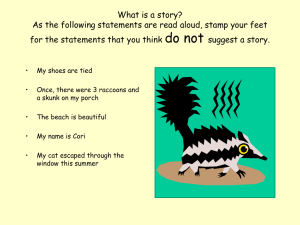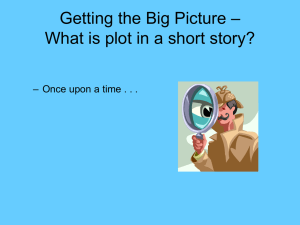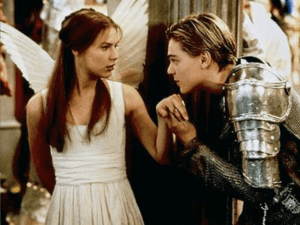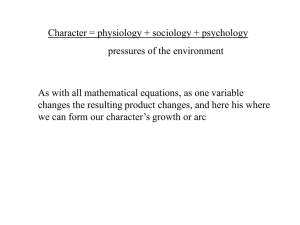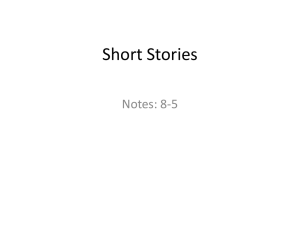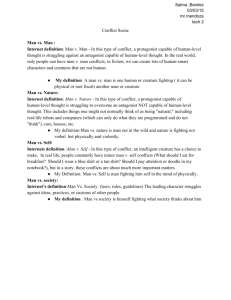Plot Characters Conflict PPT
advertisement
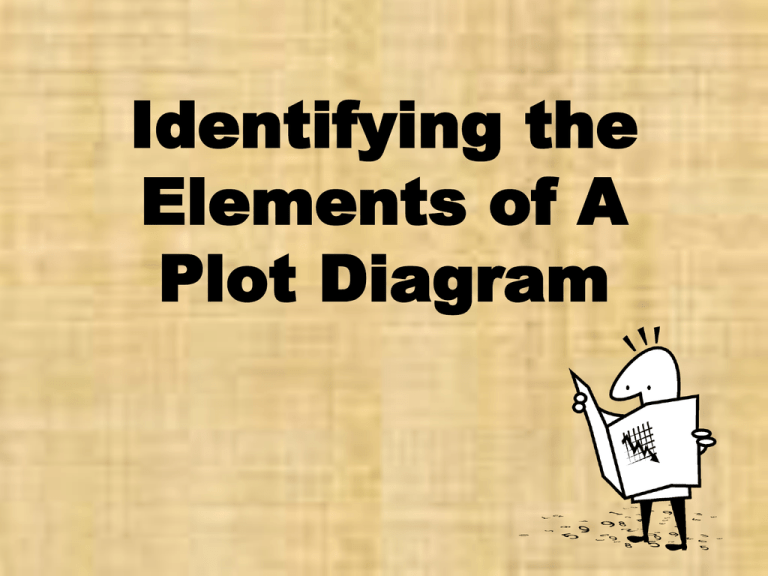
Identifying the Elements of A Plot Diagram Plot Diagram 3 2 1 4 5 Plot (definition) • Plot is the organized pattern or sequence of events that make up a story. Every plot is made up of a series of incidents that are related to one another. 1. Exposition • This usually occurs at the beginning of a short story. Here the characters are introduced. We also learn about the setting of the story. Most importantly, we are introduced to the main conflict (main problem). 2. Rising Action • This part of the story begins to develop the conflict(s). A building of interest or suspense occurs. 3. Climax • This is the turning point of the story. Usually the main character comes face to face with the main conflict. The main character will change in some way. 4. Falling Action • The series of mini conflicts or events that occur after the climax. 5. Resolution • All conflicts are resolved. The “happily ever after” ending Putting It All Together 1. Exposition - Beginning of the story. 2. Rising Action - Series of events and conflicts that lead up to the climax. 3. Climax - The turning point of the story where the main conflict is being faced “head on”! Usually towards the end of the novel/story 4. Falling Action - Events or conflicts that occur after the climax. 5. Resolution - All conflicts are resolved! Story comes to an end! Characters: Protagonist: The central character, usually the “good guy” or “hero” Antagonist: A character or characters that stand against the protagonist; opponent; rival Characters Round Character Definition: A character in fiction whose personality,background, motives, and other features are fully delineated by the author. You may be wondering… “What does delineated mean?” Delineated: Fully described with words Round characters are often DYNAMIC! Dynamic: a literary or dramatic character who undergoes an important inner change, as a change in personality or attitude: Characters Flat Characters: a character in fiction who is not fully delineated. Flat characters are often STATIC Static - a literary or dramatic character who undergoeslittle or no inner change; a character who does not grow or develop. Which of the following characters are: Round? Flat? Static? Dynamic? Static? Flat? Round? Dynamic? Brian Robeson Terry (Brian’s friend) Brian’s mom Brian’s dad Conflict Conflict: A struggle between opposing forces, a problem with the antagonist Conflicts within literature can be either INTERNAL or EXTERNAL Man vs Man (Person vs Person) External conflict The most straightforward type of conflict, pitting the protagonist directly against the antagonist. Man vs. Nature (Person vs. Nature) External Conflict This type of conflict pits a story's main character or characters against a natural force such as a flood, predatory animal, or disease epidemic. Man vs Society (Person vs Society) External conflict In many stories, the protagonist battles an unjust element of government or culture, or battles society as a whole. Man vs. Self (Person vs. Self) Some literary conflicts take the form of a character struggling to overcome fear, addiction, emotional damage or other crippling personal issue or the character is struggling to make a decision.
